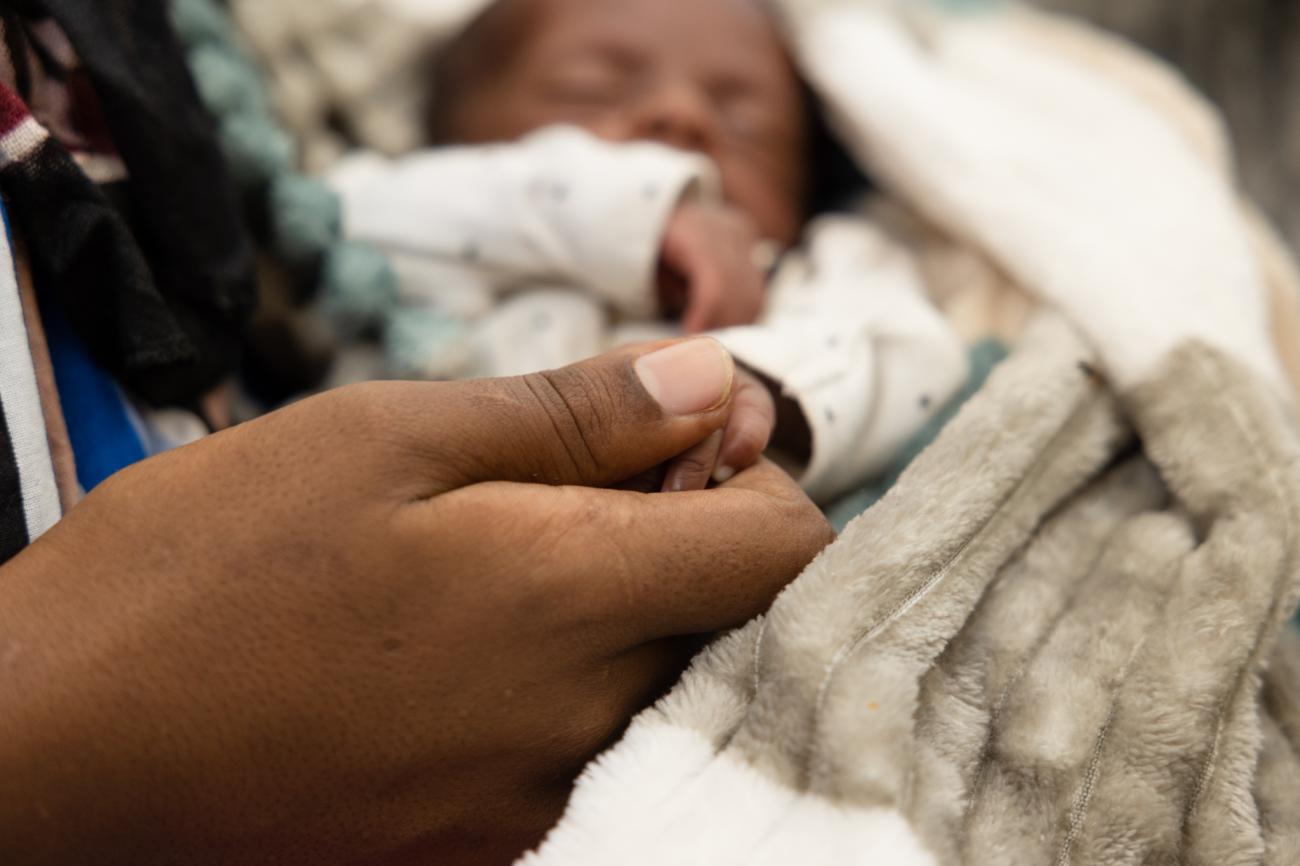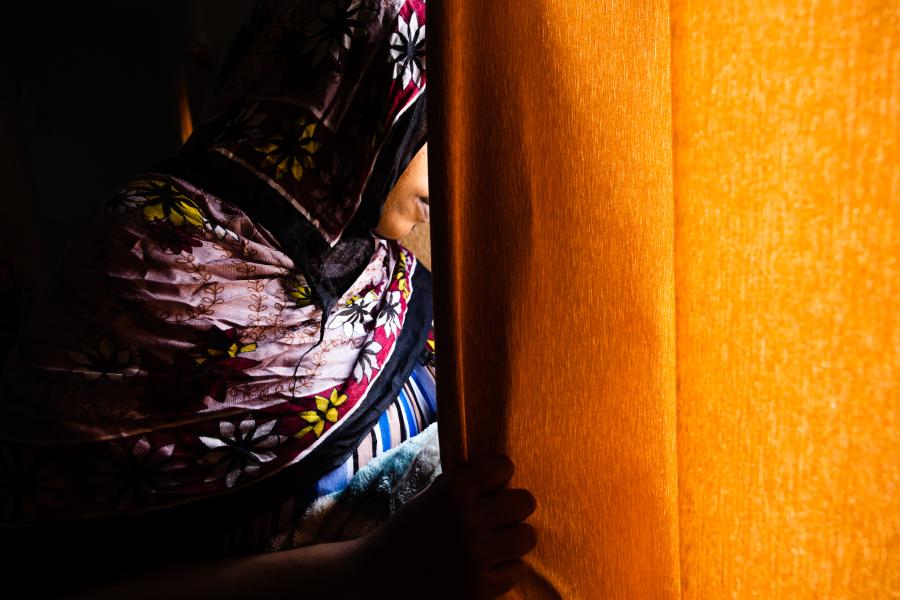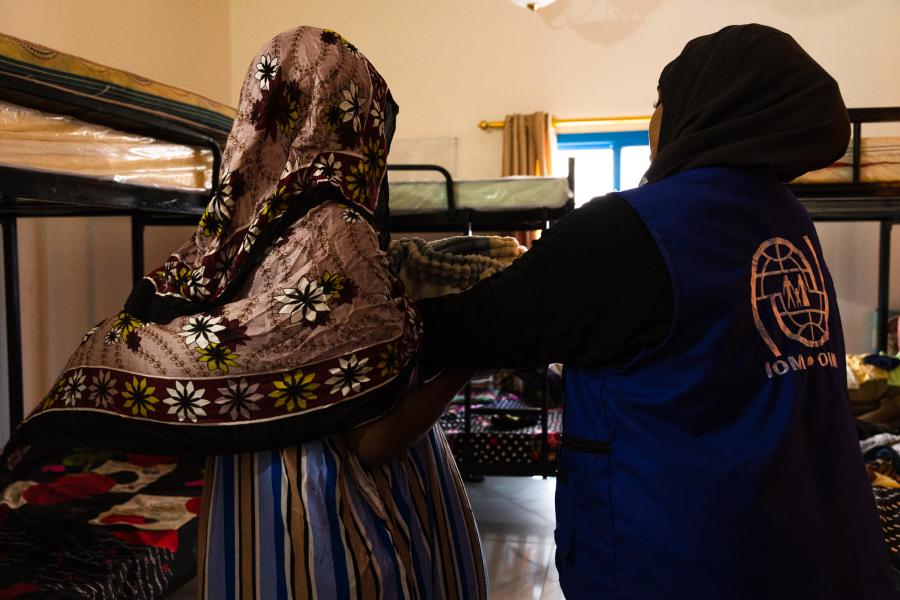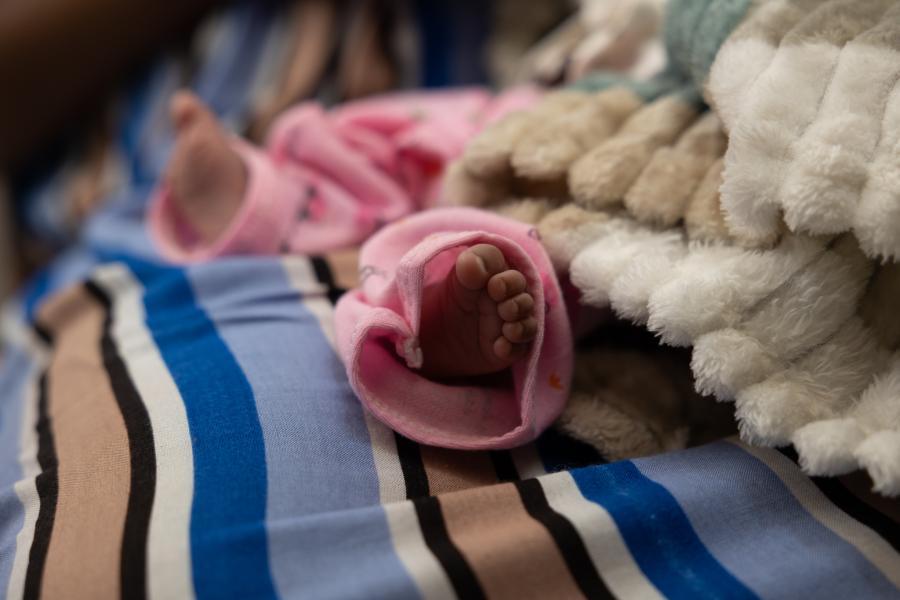IOM YEMEN: CROSSING DESERTS, DEFYING ODDS: A YOUNG MOTHER’S UNBROKEN SPIRIT PREVAILS

Aden
As a young girl growing up in Ethiopia, Samara*’s life took a harrowing turn when her parents got divorced. After her mother relocated to another village, Samara and her sister were placed under the care of their father and abusive stepmother.
The divorce stripped their biological mother of any rights to her home, crops, and children, which led to a childhood filled with misery for Samara and her older sister. The never-ending physical abuse and hurtful words would soon became their everyday reality.
“We were left at the mercy of our stepmother who treated us cruelly,” Samara says. “I used to cry myself to sleep, thinking about my mother and the peaceful life we once had.”

Samara and her sister longed to escape from that toxic environment and reunite with their mother, but the mere thought only fuelled their stepmother’s aggression further. When Samara turned 16, she reached a breaking point and decided to take her sister and leave their home in search of a better life.
To make ends meet, the two found jobs as housekeepers in a village not far from their village. One day, while Samara and her friend were sipping tea and discussing the challenges they faced finding work, a man approached them. “Do you want to make a lot of money?” Samara recalls him asking. “I can help you find work in Saudi Arabia and you won’t even have to pay me until you get there.”
Initially reluctant, she felt reassured hearing other women share their positive experiences about travelling to Saudi Arabia. “Knowing that I wouldn’t have to make this journey alone made me feel safe.” Empowered by the prospect of a better future, Samara decided to try her luck.

Her choice meant leaving her sister behind, but it was a risk she was willing to take. Three days later, the smuggler took Samara, her friend, and two other women to Addis Ababa, Ethiopia’s capital city. They spent two nights in a hotel before embarking on the next leg of their journey.
Like Samara, many migrants venture into the unknown when they travel to Yemen, driven by the hope for a better life in the Kingdom of Saudi Arabia. Their challenging journey begins with an overland trek through Ethiopia or Somalia, followed by a dangerous sea journey to Yemen’s western coast.
Transferred from one smuggler to another, Samara ended up in a group of 30 people, including women, men, and unaccompanied children. The two-day trek through unforgiving terrain proved to be both a physical and emotional trial, but the sense of camaraderie that emerged within the group gave her strength to continue.
“The desert was terribly cold and we were exhausted, but we kept going,” Samara recalls.
Then, one night, as they rested, one of the smugglers separated Samara from the group, threatening to abandon her if she cried out for help. Other women in the group faced similar ordeals.
They were later transported by boat to the city of Lahj in Yemen. From there, they were driven across the desert to the smuggler’s house where Samara and two other women found themselves in the hands of a different captor.

Desperation set in as the smuggler demanded for money if they wished to continue their journey onwards to the Kingdom Saudi Arabia. Samara reached out to her family, hoping for support, but the response was bleak. Her father refused to assist, holding her responsible for her predicament. Her sister, though willing, was not able to meet the smuggler’s financial demands.
After seven agonizing months, Samara discovered she was pregnant. By that time, the smuggler had sold her to another individual who transported her to the border between Yemen and the Kingdom of Saudi Arabia. Her situation was growing dire by the day. Perhaps moved by a glimmer of humanity – she likes to think – another smuggler negotiated her release.
Samara’s journey mirrors the struggles faced by countless migrants in Yemen. In the first nine months of 2023 alone, over 92,000 migrants had arrived in Yemen, already surpassing last year’s figures. These migrants, reaching over 200,000, along with 100,000 refugees and asylum seekers, grapple with dire conditions and face heightened risks of human rights abuses.
IOM provides direct protection assistance and protection case management and referrals for migrants and Yemenis who are at protection risks – including survivors of gender-based violence (GBV) and victims of trafficking. In 2022, IOM supported over 9,700 people in Yemen with dedicated protection case management and referral support.

Upon finally regaining her freedom, Samara found herself in Sa'dah governorate in Yemen, where she met people who offered help. They accompanied her and other migrants back to Lahj, from where she made her way to Aden. Once there, Samara reached the Migrant Response Point (MRP) ran by the International Organization for Migration (IOM).
When she arrived, IOM staff quickly recognized that she was in labour and rushed her to the hospital. Once she delivered the baby, she was transferred to IOM’s Community-Based Centre (CBC), a safe haven equipped with essential provisions and the necessary care for both herself and her newborn.
“As soon as she was cleared by the doctors, we took her to the centre and gave her time to rest and care for her baby,” shares Zahra, an IOM Case Worker in Aden. “He was so small and frail, but from the moment she laid eyes on him, she embraced him as the most precious gift.”
IOM’s humanitarian assistance and protection services in response to the needs of the returnees are aligned with the Regional Migrant Response Plan for the Horn of Africa and Yemen 2023, which aims to address the needs of migrants in vulnerable situations and host communities in countries situated along the Eastern Migration Route, located between the Horn of Africa and Yemen. In 2022, IOM has supported more than 75,000 migrants with humanitarian aid, offering shelter, healthcare, food, water, and protection services.
IOM’s protection assistance through the MRPs and CBCs is supported by EU Humanitarian Aid (ECHO), the United States Bureau of Population, Refugees and Migration (PRM) and the Government of Germany.
*Name has been changed to protect identities


